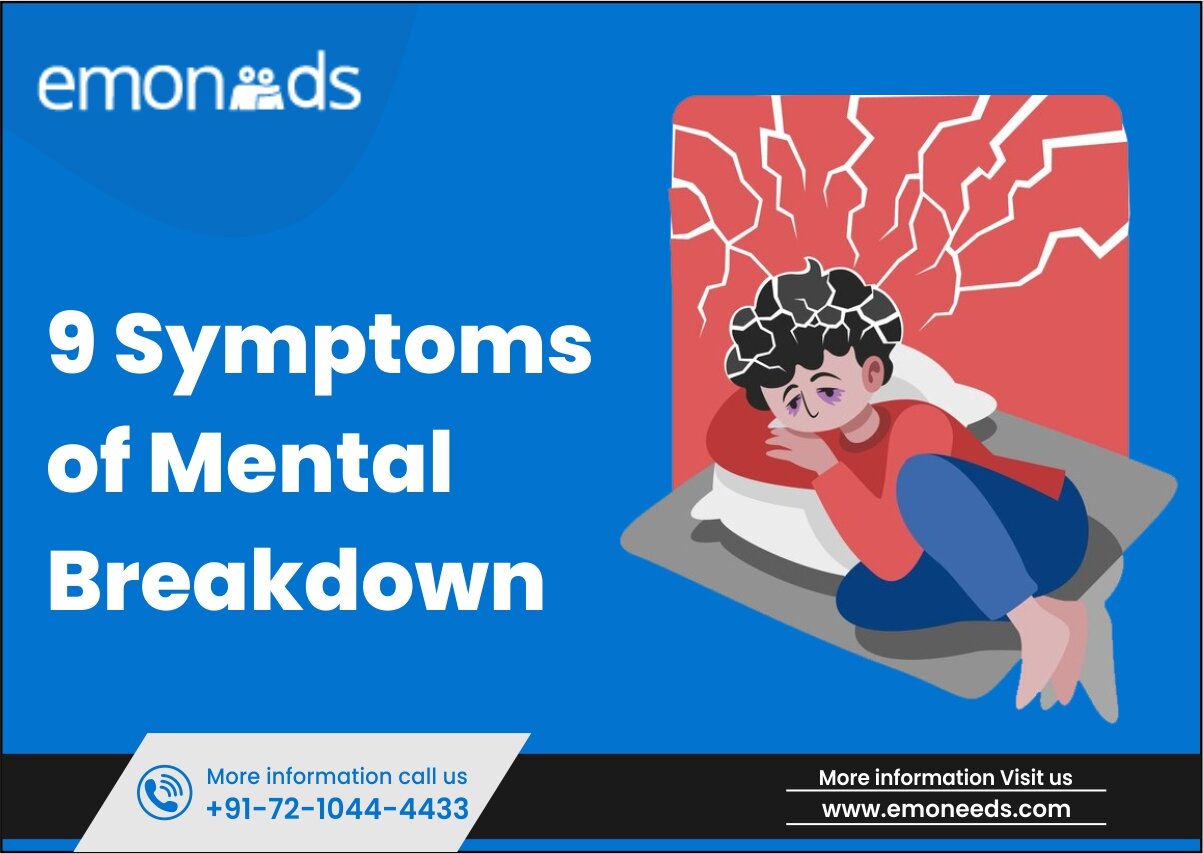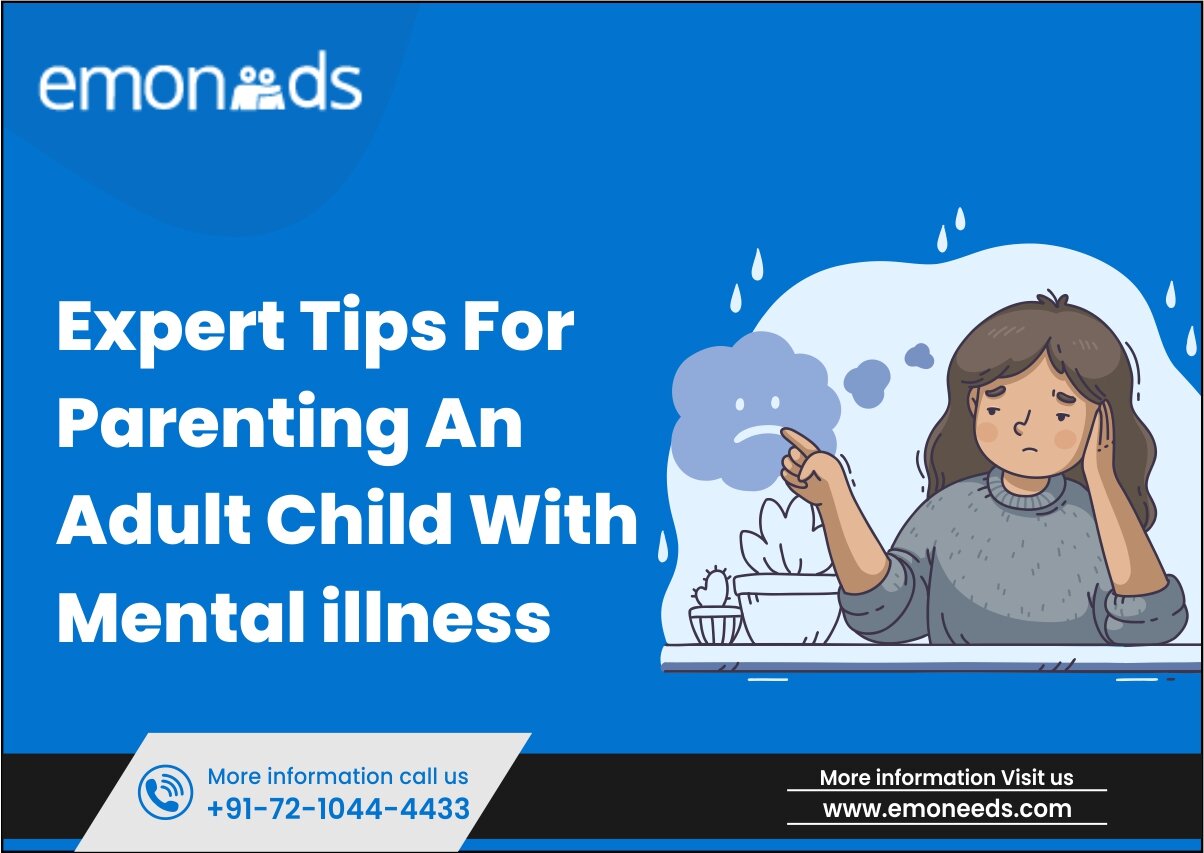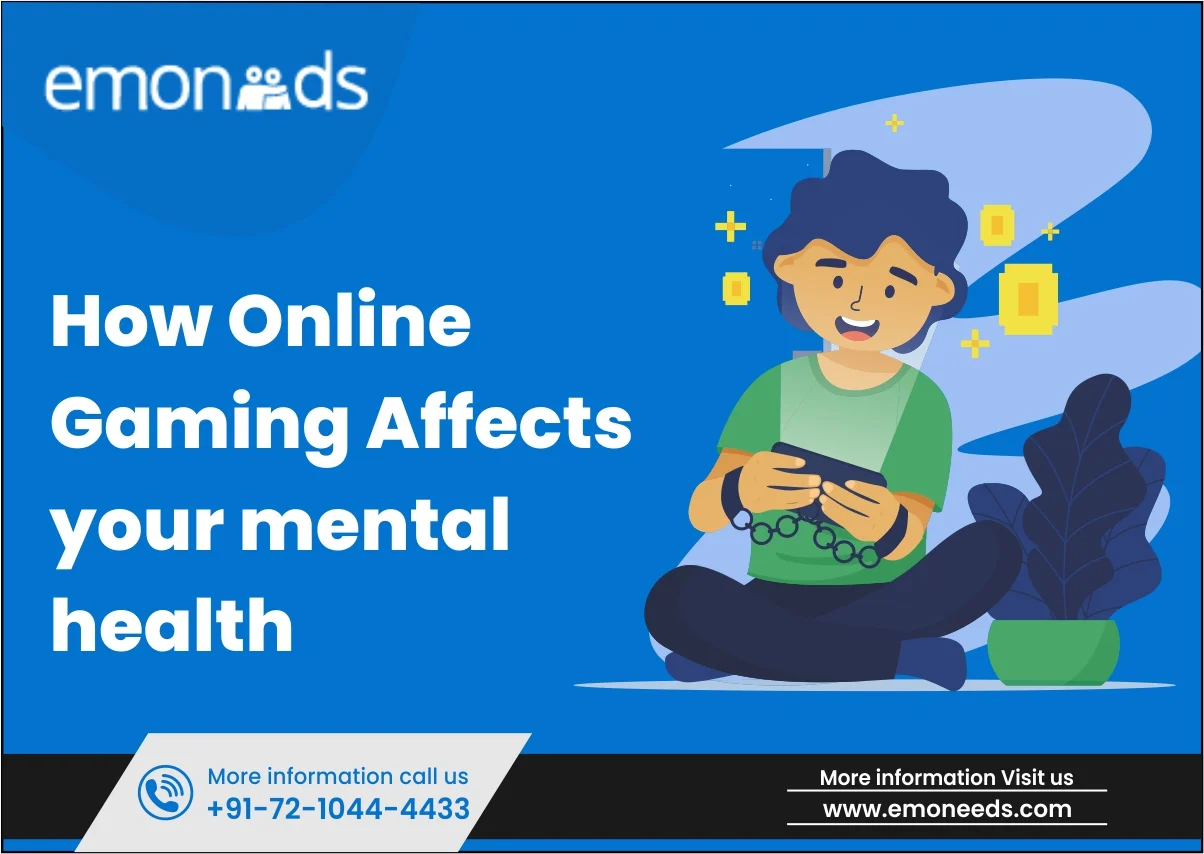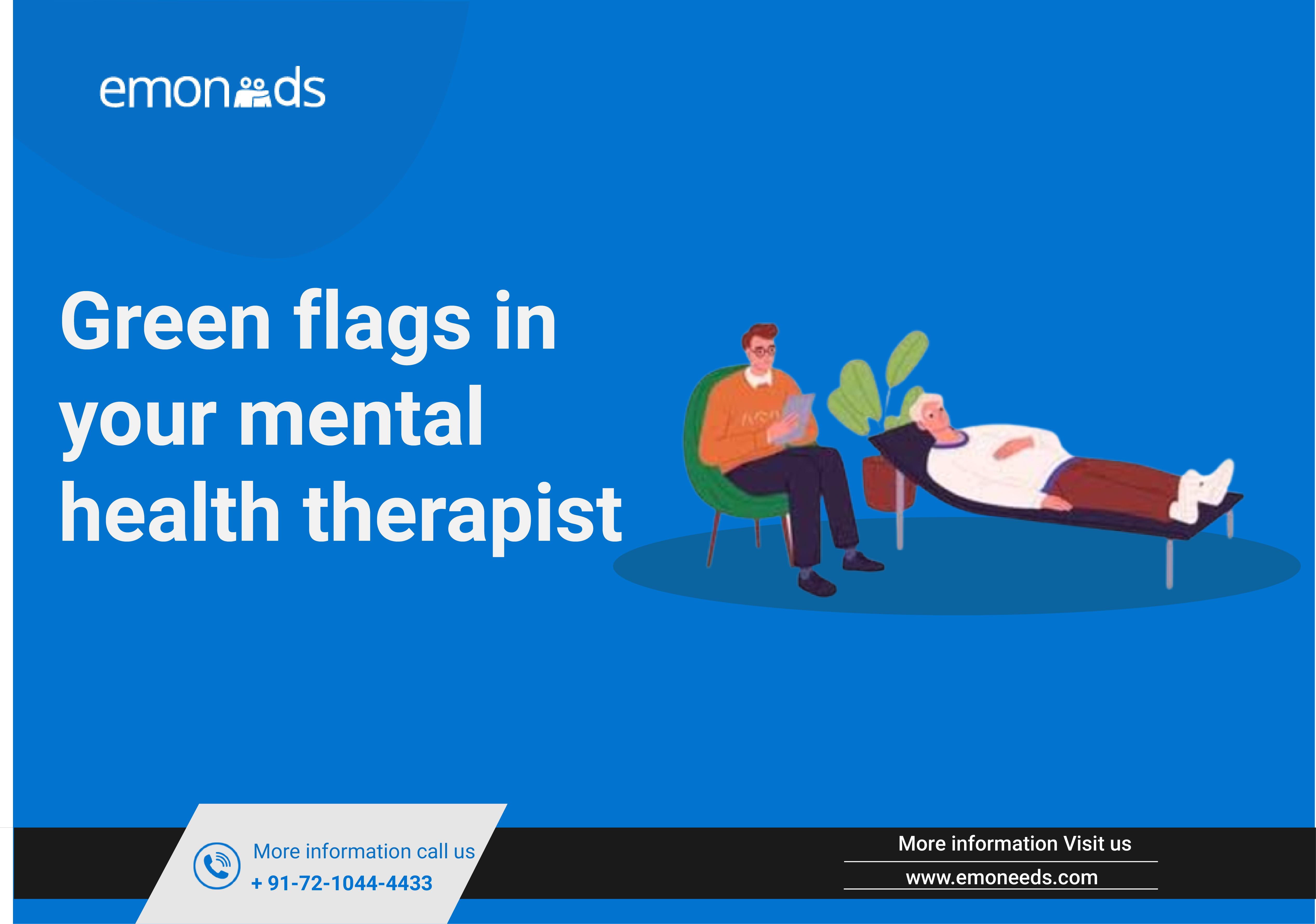
If you’ve ever felt on the verge of a mental breakdown, know that you’re not alone. The pressures of success, parental responsibilities, and work-related stresses are increasingly common, pushing many of us to crisis points. It’s crucial to recognize that a mental breakdown may not always manifest as a sudden or dramatic event; rather, it can develop gradually over time due to intense stress and anxiety. Being aware of these signs and reaching out for support for mental illness when needed, individuals can effectively navigate through challenging times and prioritize their well-being.
Symptoms of a Mental Breakdown
Here, we outline the symptoms of a mental breakdown and provide guidance on seeking assistance when necessary.
-
Anxiety and Depression
Prolonged stress, such as that experienced during a mental breakdown, can significantly elevate the risk of developing anxiety and depression. Anxiety has emotional symptoms like dread, fear, and nervousness, accompanied by physical sensations like sweating, tension, and a rapid heart rate. While these symptoms are common responses to stress, they typically dissipate after a short duration. However, individuals with anxiety disorders endure chronic and overwhelming stress.
Depression is characterized by persistent feelings of sadness. Those affected may also experience anxiety, guilt, hopelessness, or irritability. The emotional burden of depression can be debilitating, impacting various aspects of daily life. Identifying these symptoms early on and seeking appropriate support is crucial in managing anxiety and depression effectively during times of heightened stress and emotional turmoil.
-
Panic Attacks
During periods of intense stress, some individuals may experience panic attacks, which can be debilitating and frightening experiences. Panic attacks often begin as sudden and overwhelming episodes of extreme fear or a sense of impending doom. Physical symptoms may include difficulty breathing, shaking or trembling, an accelerated heart rate or heart palpitations, and profuse sweating. These symptoms can be so severe that individuals may feel as though they are losing control or even experiencing a heart attack.
It’s important to recognize that panic attacks are a physiological response to heightened stress and anxiety, and they are not a sign of weakness or inadequacy. Seeking support from mental health professionals can help individuals learn coping mechanisms and strategies to manage panic attacks effectively. With the right support and resources, individuals can regain a sense of control over their mental health and navigate through periods of extreme stress more successfully.
-
Difficulty in Sleeping
During an emotional breakdown, disruptions in sleeping patterns are common, leading to either sleeping too little or too much. Insomnia, characterized by trouble falling asleep or staying asleep, often accompanies heightened stress levels, with individuals experiencing racing thoughts and persistent rumination. Research indicates a strong link between elevated levels of the stress hormone cortisol and decreased sleep duration, highlighting the bidirectional relationship between stress and sleep.
Conversely, some individuals may find themselves sleeping excessively as a means of escaping from overwhelming emotions and stressors. A study published in 2014 revealed a concerning correlation between prolonged sleep duration and mental health conditions such as anxiety and depression. Among a sample of over 24,000 individuals aged 15–85 years, those who slept longer than 10 hours per day were more likely to exhibit symptoms of mental health disorders.
-
Feeling Exhausted
Experiencing a mental breakdown can leave individuals feeling overwhelmingly exhausted and fatigued. The burden of excessive stress can drain one’s physical and emotional energy, making even simple tasks feel daunting and insurmountable. Activities that were once sources of enjoyment may now seem like burdens, further exacerbating feelings of exhaustion and contributing to a sense of hopelessness.
Sleep disturbances commonly associated with mental breakdowns, such as insomnia or excessive sleeping, can also contribute to feelings of exhaustion. Whether due to racing thoughts keeping one awake at night or an escape into prolonged periods of sleep, disruptions in sleep patterns further compound feelings of fatigue and lethargy.
-
Withdrawal from Family and Friends
During a mental breakdown, withdrawing from friends, family, and coworkers is a common behavior that often manifests in various signs. Individuals experiencing heightened emotional distress may find themselves calling in sick for work, avoiding social engagements, and missing scheduled appointments. The desire to isolate oneself from others can lead to a reluctance to spend time with loved ones, instead choosing to remain secluded at home.
Neglecting personal hygiene can also be a telling sign of withdrawal during a mental breakdown, as individuals may lack the motivation or energy to maintain basic self-care routines. These withdrawal behaviors can exacerbate feelings of loneliness and isolation, further perpetuating the cycle of emotional turmoil.
-
Poor Concentration Level
Prolonged stress, such as that experienced during a nervous breakdown, can significantly impact memory and concentration levels. Research indicates that chronic stress may lead to structural changes in various regions of the brain, affecting cognitive function. As a result, individuals may struggle with difficulties in concentrating, remembering information, or making decisions.
These cognitive symptoms not only impair daily functioning but also exacerbate the stress experienced during a mental breakdown. The inability to effectively manage cognitive challenges can further perpetuate feelings of overwhelm and helplessness. By prioritizing mental well-being and implementing targeted interventions, individuals can regain a sense of control over their cognitive function and navigate through periods of heightened stress more successfully.
-
Loss of Appetite
During a mental breakdown, loss of appetite is a common phenomenon often accompanied by physical discomfort such as headaches or stomach aches. Research has shown that some individuals may experience gastrointestinal issues like constipation or diarrhea, contributing to a diminished desire to eat.
Others may resort to overeating unhealthy foods as a coping mechanism during a nervous breakdown. Stress hormones like cortisol can trigger cravings for high-fat, high-sugar foods, leading to unhealthy eating habits. The lack of motivation to prepare nutritious meals further exacerbates the consumption of unhealthy foods. Individuals in the midst of a mental breakdown may find it challenging to care for themselves in the typical manner.
-
Uncontrollable Crying
During a mental breakdown, episodes of uncontrollable crying are not uncommon. Research suggests that stress, fatigue, and sleep deprivation can exacerbate emotional responses, leading individuals to feel more prone to crying than usual.
As per a study conducted in 2019 highlighted the potential benefits of crying in response to stress. It emphasized that allowing oneself to cry may serve as a constructive coping mechanism, particularly for healthcare providers facing high levels of stress. Crying provides a release for pent-up emotions and stress, potentially helping individuals manage their emotional burdens in a healthier manner. In contrast, suppressing emotions and keeping stress bottled up may lead to increased feelings of anger and exacerbate the challenges associated with a mental breakdown.
-
Feeling Helpless
Feeling helpless is one of the distressing nervous breakdown symptoms that may signal a mental health crisis, distinct from the temporary anxiety experienced in high-stress situations. While anxiety typically subsides after the stressor passes, feelings of hopelessness can persist, indicating deeper emotional turmoil.
A study conducted in 2020 sheds light on the impact of stress and uncertainty on feelings of hopelessness. Published during the onset of the COVID-19 pandemic, the study compared anxiety and hopelessness levels among healthcare professionals and the general community in Turkey. The findings revealed an increase in feelings of hopelessness, particularly among those facing heightened stress and uncertainty about the future. This highlights the profound impact of external stressors on mental well-being and underscores the importance of addressing feelings of helplessness promptly to prevent further deterioration of mental health.
Conclusion
In conclusion, amidst the challenges of a mental breakdown, various self-care and relaxation methods can provide solace and relief. However, if chronic stress begins to disrupt daily functioning, seeking guidance from a mental healthcare provider for mental breakdown treatment becomes essential. Furthermore, it’s crucial to prioritize safety and seek immediate medical assistance if thoughts of self-harm arise during a mental health crisis.
Emoneeds is your trusted online platform for emotional support and tailored psychological solutions. With a team of qualified mental health specialists and psychologists, we offer personalized treatment for a wide range of mental health concerns. Whether you’re struggling with anxiety, depression, or stress, our compassionate professionals are here to help. Accessible anytime, anywhere, Emoneeds provides a confidential and convenient space to prioritize your mental well-being. Take the first step towards a healthier mind with Emoneeds – because your emotional needs matter.
FAQs
-
How do I know if I’m having a breakdown?
Signs of a breakdown include overwhelming emotions, difficulty concentrating, changes in sleep or appetite, isolating oneself, feeling hopeless or helpless, and physical symptoms like headaches or stomach issues. Seek support from loved ones or professionals if you experience these symptoms intensely or for an extended period.
-
Do mental breakdowns go away?
Mental breakdowns can improve with proper support, self-care, and professional help. Recovery varies for each individual, but with effective coping strategies, therapy, medication if needed, and lifestyle adjustments, symptoms can lessen over time. Consistent self-awareness and proactive management can contribute to long-term mental well-being.
-
How do you stop a mental breakdown fast?
To halt a mental breakdown quickly, try grounding techniques like deep breathing, mindfulness, or focusing on sensory experiences. Reach out to a trusted friend or therapist for support. Prioritize self-care by getting enough rest, eating nutritious meals, and avoiding stressors. If necessary, seek immediate professional help or call emergency services.
-
What is an emotional breakdown?
An emotional breakdown refers to a period of intense emotional distress where an individual feels overwhelmed, unable to cope, and may experience a loss of control over their emotions. It can manifest as uncontrollable crying, panic attacks, or feelings of despair. Professional support and coping strategies are often needed for recovery.
-
What are 5 emotional signs of stress?
Five emotional signs of stress include increased irritability or agitation, feeling overwhelmed or anxious, experiencing frequent mood swings, feeling depressed or hopeless, and having difficulty concentrating or making decisions. These signs can vary in intensity and duration, but they often indicate the presence of significant stress in one’s life.




